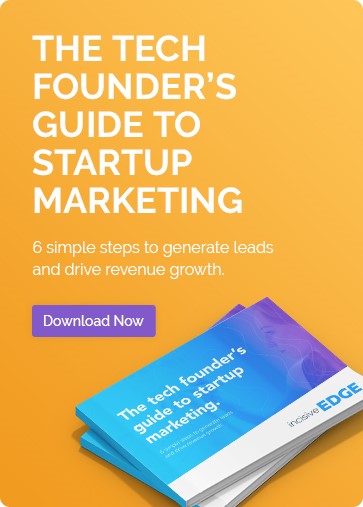Search engines like Google or Bing are pivotal in shaping the online buying behaviour of today's B2B customers. These potential buyers rely on search engine results to explore web pages, facilitate effective link building, conduct product searches, perform price comparisons, gather knowledge, and gain market intelligence. Additionally, they use search engines to identify brands capable of delivering the necessary landing pages and services.
Brands looking to put their offerings before the highest number of potential customers must strive to have their web pages and online resources as close as possible to the top of Page 1 search engine results pages (SERPs).
The way to achieve this is through search engine optimisation, or SEO. In fact, for B2B organisations, an SEO strategy provides a more cost-effective investment than sinking money into other marketing avenues such as Pay Per Click (PPC).

[Image source: Search Engine Journal]
So what is SEO? In this guide, we explain all.
What is search engine optimisation (SEO)?

[Image source: SlideTeam]
Search Engine Optimisation or SEO is a set of techniques whose aim is to elevate the position of a website or online asset to as high a level as possible on SERPs. In essence, an SEO strategy is dedicated to increasing your site’s visibility in the search rankings. this is crucial, for the more visibility your site or online resource has, the greater the chances of it attracting relevant prospects at a local, national, or global level.
Defining B2B SEO
B2B SEO is the set of practices designed to get your organisation the highest possible rankings on search results in B2B markets. Crafting a successful B2B SEO strategy involves deploying Google Analytics for insights, developing a comprehensive keyword strategy, and utilising advanced keyword research tools.
These techniques are geared towards connecting with decision-makers in your target audience. When members of your target audience actively research the product or service you offer using search engines, your company's website should stand out as a top choice.
Organic search traffic is a key customer acquisition channel for B2B companies. So the central aim of B2B SEO is to get as much high-quality organic traffic to your website as possible.
Check out the following articles to learn more about SEO:
- The Blueprint for a B2B SEO Content Strategy That Works
- Top Benefits of Hiring a B2B SEO Agency in 2023
- B2B Search Engine Marketing: The Key to Online Success
Elements of B2B SEO
Various key elements make up a typical B2B SEO strategy. They include the following.
On page SEO
This involves the optimisation of your web pages and content marketing output. For example, on a blog post, this would include the title tag and meta description (the brief snippet of text encapsulating the scope of the article), the explanatory text (alt text) preceding the appearance of visual images, and the creation of content that is both relevant to the target audience and easy for a search engine to discover.
Off page SEO
This aspect of SEO consists of the actions you take outside of your own website or online assets to make a positive impact on your search engine rankings. Much of the focus of this activity is often to do with attracting back links (links to your material from external websites) from trusted sources in your industry.
Technical SEO
Technical SEO involves optimising the back end infrastructure of your online assets, such as the source code of your website. It may also involve increasing the load speed of your web pages, and developing responsive design solutions that work equally well for search engine users arriving at your site from desktop and mobile devices.
Content SEO
This component involves the content marketing output of your B2B promotional campaigns. Here, you create content on the basis of research into the needs and pain points of your target audience, and the search intent of potential buyers.
Characteristics of B2B SEO
The principal aims in B2B marketing are to generate brand awareness and quality leads that will eventually turn into sales opportunities and deals. This makes the B2B buying process much more complicated than in B2C markets in a number of ways, which include the following.
More time spent at each stage in the sales funnel
A B2B decision-maker will typically spend a lot of time in the research stage, using search engines and other sources to collect information about various offerings. During this long time period, and with the different needs of each sales step, the B2B digital marketing strategy requires a lot of different content types for each stage of the buyer’s journey.
Low-volume and long-tail keywords
Effective SEO hinges on the strategic selection of low-volume keywords, which are often highly specific and align with the particular search intent of a niche group of potential buyers. These low-volume keywords, known as long tail keywords, play a pivotal role in search engine algorithms as they are directly tied to your chosen target keywords.
Low conversion rates
B2B decision-makers rarely make a purchasing decision instantaneously, on the basis of a single search or the consumption of a single piece of content. For an SEO strategy to be successful, organisations must therefore budget for a high volume of content marketing output which covers the entire buyer’s journey, is strategically distributed, and is optimised for major search engines relevant to their industry.
Developing an effective SEO strategy
To secure a prominent place for your content on the first page of search engine results, you must establish a credible online presence aligned with Google's criteria for high-quality pages, encapsulated in the acronym EAT: Expertise, Authority, and Trustworthiness. This involves meticulous content creation and crafting compelling meta descriptions.
This won’t happen overnight – but there are steps you can take to increase the search volume that includes members of your target audience of B2B decision-makers. They include the following.
Create buyer personas
The better your understanding of the needs, aspirations, and pain points of your target audience, the better your ability to create content and resources that assists them, and guides them on the road to making a purchase. Detailed and accurate buyer personas help in empowering you to create material that reflects the search intent of your target audience.
Conduct keyword research
Conducting keyword research can reveal both the phrases and topics most pertinent to your offerings, and those most important to your buyer personas. You can then transform these keywords into questions and titles for content and resources that your target audience is actively searching for.
Create and optimise your content
For example, you can create content and landing pages tailored for each buyer persona or business type, and optimised for keywords you want to rank for on the major search engines.
Promote your content
Besides looking for back link opportunities, you can also craft a social strategy that includes the promotion of your current content on platforms relevant to your industry. Creating and sharing informative and high-quality content on social media can also encourage organic links and user-generated content in the form of positive comments and reviews.
Track and measure your progress
You can use SEO tools to track and measure the success of your efforts. For example, Google Search Console is a free tool that provides insights into which of your web pages are ranking, and for which keywords.
Get the help that you need
An SEO strategy takes considerable time, expertise, and effort to implement and sustain. You may therefore benefit from outsourcing the work to a specialist marketing agency that offers SEO services.
Here at Incisive Edge, we design and execute SEO strategies to enable you to attract more traffic, generate better quality leads, and increase your revenue. Our SEO campaigns have been consistently delivering great results for over a decade.
Our tried and trusted methodology has pushed hundreds of our customers onto the front page of Google – and we’re ready to do the same for you.
To learn more about how Incisive Edge can help boost your online presence through B2B SEO, get in touch with us.





.jpg)

